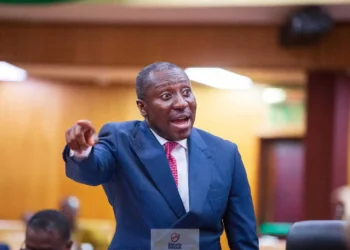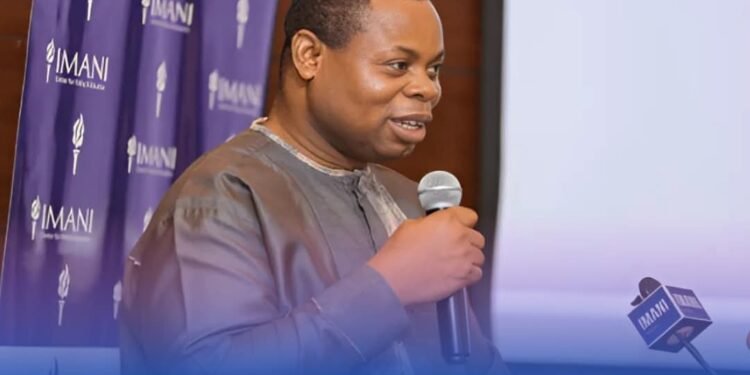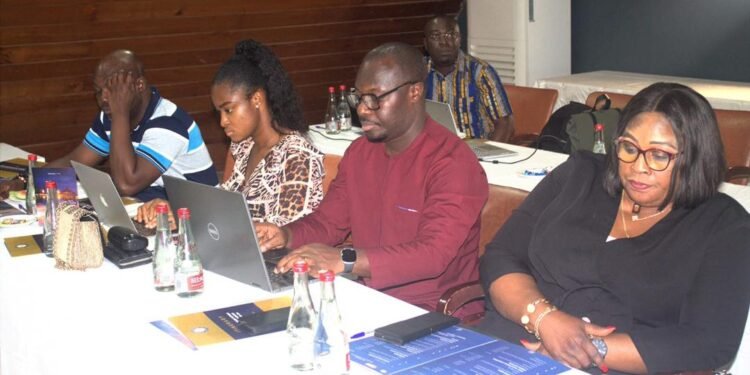The Office of the Special Prosecutor (OSP), led by Kissi Agyebeng, has uncovered what it described as “egregious statutory breaches” in the controversial revenue assurance contracts awarded to Strategic Mobilization Limited (SML) by the Ghana Revenue Authority (GRA) and the Ministry of Finance under former Finance Minister Kenneth Ofori-Atta.
According to findings from the OSP’s investigation, the multi-million-cedi contract, which was intended to enhance revenue collection and auditing across selected sectors, was instead tainted by illegality, poor oversight, and official manipulation.
The report concluded that there was “no genuine need for contracting SML for the obligations it purported to perform”, revealing that the deal was built on false and unverified claims and secured through “self-serving official patronage, sponsorship, and promotion.” The OSP’s findings are damning not only for the company involved but also for the public institutions that facilitated the deal.
The report establishes that key officials at the Ministry of Finance and the GRA willfully disregarded mandatory statutory procedures, including prior approvals from relevant oversight bodies, in their rush to formalize and execute the contracts.
The Special Prosecutor noted that these officials acted with “increased and emboldened impunity,” raising serious concerns about the collapse of accountability mechanisms within the state’s financial management system.
The OSP emphasized that such behavior not only violated established public financial management laws but also represented a deeper cultural problem within Ghana’s contracting regime, where politically connected firms are often handed lucrative state contracts without transparent justification or value-for-money assessments.
No Established Financial Management System
The OSP further revealed that there was no established financial management system in place to monitor and verify SML’s performance or to ensure that the Republic derived value from the substantial payments made to the company.
In practice, this meant that payments to SML were triggered automatically, detached from any form of performance-based assessment or verification. “The payment channels to SML were set on automatic mode, detached from actual performance, causing financial loss to the Republic,” the Special Prosecutor said.
This automatic payment structure, according to the investigation, effectively guaranteed SML a continuous stream of revenue from the state, regardless of whether it delivered on its contractual obligations.
The OSP’s findings have reignited public debate about the lack of transparency in government contracting, especially during the tenure of former Finance Minister Kenneth Ofori-Atta.
The SML saga reflects a broader pattern of opaque deals and disregard for due process that characterized several financial and procurement arrangements under his administration. The report underscores how patronage networks and political favoritism continue to erode professionalism within Ghana’s public sector.
By allowing party-connected businesses to access lucrative contracts through political channels, rather than through competitive and transparent procurement, public institutions weaken internal controls and expose the state to financial risks.
The OSP’s report also questions the necessity of the SML contract itself, noting that the supposed functions assigned to the company—monitoring revenue flows in the petroleum and other sectors—were already being performed by established state agencies such as the National Petroleum Authority (NPA), the Ghana Standards Authority (GSA), and the Customs Division of the GRA.
Duplication of Responsibilities,
The duplication of responsibilities, the OSP observed, had no technical or operational justification and resulted in the needless expenditure of public funds.
The investigation further revealed that the financial arrangements underpinning the SML contract were opaque and irregular, with no clear audit trail linking payments to measurable outputs.
The lack of a monitoring framework, combined with the automatic payment structure, rendered the contract a liability to the state rather than an instrument of fiscal improvement.
The findings provide a sobering reminder of how weak institutional oversight and political interference continue to undermine Ghana’s anti-corruption agenda.
The OSP’s revelations, they argue, not only call for the prosecution of those responsible but also demand a comprehensive overhaul of how public contracts are conceptualized, approved, and executed.
In conclusion, the OSP’s investigation into the SML contract stands as one of the most significant anti-corruption inquiries in recent years. It exposes a pattern of institutional negligence, official complicity, and financial irresponsibility that cost the state millions of cedis.
The Special Prosecutor’s report, while damning, offers Ghana an opportunity to confront the entrenched culture of political patronage that continues to drain public resources and erode confidence in government accountability systems.
READ ALSO: KPMG Partner Urges Transparency, Accountability to Strengthen Ghana’s Energy Sector























